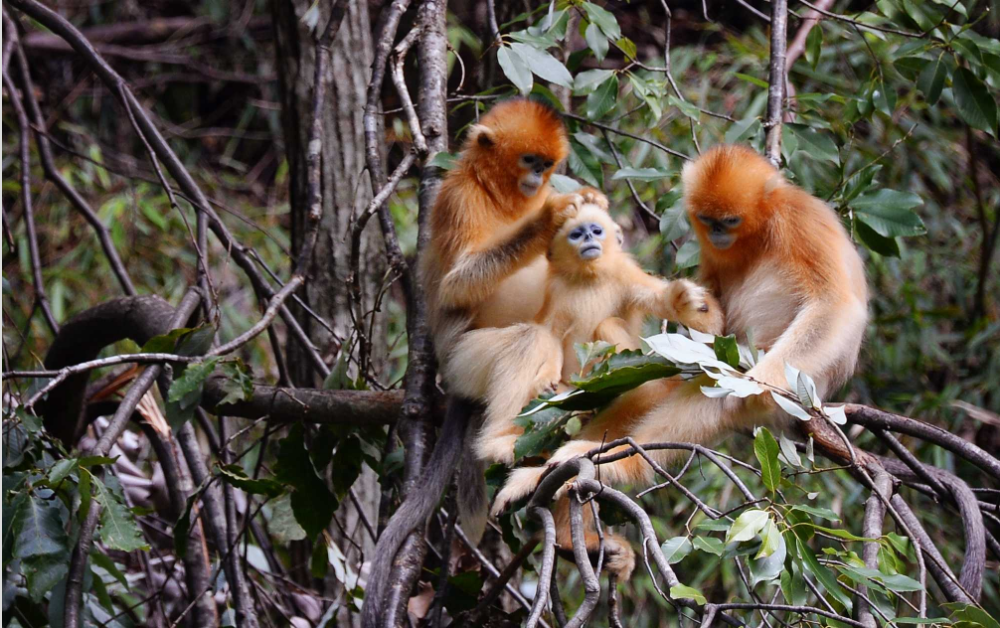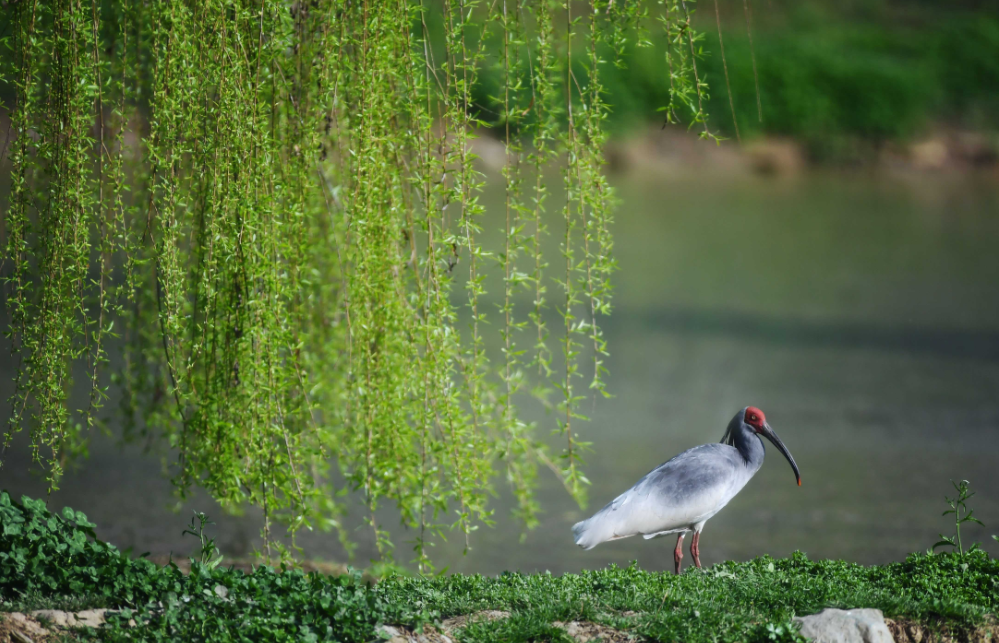Protecting Nature, Enhancing Lives
News Desk
Beijing: The protection and development of natural capital through biodiversity projects is equally critical for sustainable improvement in the lives and livelihoods of people, said Asian Development Bank (ADB) Country Director in the People’s Republic of China Safdar Parvez.
During his recent visit to the Qinling National Botanical Garden, Parvez said that the Qinling Biodiversity Conservation and Demonstration Project has encouraged local communities to participate in biodiversity conservation by creating revenue opportunities from the eco-tourism business. Country Firector further said that through the implementation of the project, ecosystem management in the Qinling Mountains has been strengthened, rural incomes have increased and poverty reduction has been achieved. Golden monkeys play at a valley in Foping County, northwest China’s Shaanxi Province, Aug. 3, 2018. (Xinhua/Liu Xiao)
Golden monkeys play at a valley in Foping County, northwest China’s Shaanxi Province, Aug. 3, 2018. (Xinhua/Liu Xiao)
We are trying to learn from gardens like these and replicate the best practices that we find here to disseminate that knowledge in other provinces and in other developing member countries, Parvez added.
Qinling Biodiversity Conservation and Demonstration Project is a comprehensive national ecological demonstration project of biodiversity conservation and scientific research funded by the Asian Development Bank (ADB) that was launched over a decade ago.
The project includes two parts: plants and animals. The plant part is undertaken by the Qinling National Botanical Garden, while the animal part is undertaken by the Qinling Giant Panda Research Centre.
The Qinling Mountains are one of the most important ecosystem function conservation areas in China and a hotspot of biodiversity in the world that has made prominent improvements in wildlife protection in recent years.
The Qinling Mountains, mainly in northwest China’s Shaanxi province, house a huge variety of wild animals and plants.The mountainsare home to about 20 perncent of China’s wild giant panda population, golden monkeys, takin, and the only known wild population of crested ibis, one of the rarest birds in the world. It is the central water tower of our country and the important water head site of the Yangtze River and Yellow River Valley. Takins walk in a forest in the Qinling Mountains, northwest China’s Shaanxi Province, June 27, 2019. (Xinhua/Tao Ming)
Takins walk in a forest in the Qinling Mountains, northwest China’s Shaanxi Province, June 27, 2019. (Xinhua/Tao Ming)
Data from the Shaanxi Development and Reform Commission and the Shaanxi Provincial Meteorological Bureau showed that the quality of the ecological environment in the mountains has been improving year by year.
The water conservation capacity of the area is relatively stable, and the water conservation capacity will reach 278.6 mm in 2022 which is higher than the multi-year average.The Shaanxi Provincial Forestry Bureau stats show that at present, the forest coverage rate of the Qinling Mountains has reached 82 percent, making it the greenest region in the country.
A number of villagers who have been shifted to newly built houses expressed satisfaction over the facilities, including job opportunities, education and health facilities.
ADB East Asia Department Senior Project Officer Niu Zhiming stated that eco-tourism commercial activities and conservation projects provide sustainable alternative livelihoods for local communities, ultimately easing the pressure on land and biodiversity conservation.
Qinling National Botanical Garden Director Zhang Qinling informed that the project will use ADB loans of US$40 million and provincial supporting funds of 420 million yuan.The total investment in the project is 692 million yuan and the Global Environment Facility (GEF) also awarded $4.27 million in grants. A crested ibis rests at an ecological park in Yangxian County, northwest China’s Shaanxi Province, March 20, 2019. (Xinhua/Liu Xiao)
A crested ibis rests at an ecological park in Yangxian County, northwest China’s Shaanxi Province, March 20, 2019. (Xinhua/Liu Xiao)
The Qinling Giant Panda Research Centre has received more than 800,000 visitors from May 2021 to October 2023, with an average annual revenue of 20 million yuan, mentioned Minister Planning and ConstructionBai Xuxiang. Around the hotel, catering, accommodation, and other tourism services generate an annual income of more than 50 million yuan.
Another set of data provided by the Qinling Project Office also shows that since the implementation of the Qinling Project, the number of eco-tourism tourists in the project area has exceeded one million annually.
Rural per capita income has increased; Qinling National Botanical Garden and Shaanxi Wildlife Rescue Centre directly created more than 300 operational jobs, and related project activities created more than 1,500 jobs; Local employment opportunities have increased through the development of commercial activities such as small-scale community ecotourism.
At the same time, it has also enhanced the visibility of the Qinling National Botanical Garden and played a leading role in the construction of the National Botanical Garden system, striving for supporting funds, provincial-related funds, and scientific research project cooperation.
According to the Qinling National Park Establishment Plan, the park covers 6 cities, 21 counties (districts), 65 natural conservation areas, scenic and historical areas, and 41 geological relics, covering a total planning area of about 13,500 km2.
Qinling Mountain National Park is planned to be divided into two districts; the core urban conservation area is 8240 km2, accounting for 61 per cent; and the general control area is 5,275km2, or 39 per cent.

Comments are closed.